Foreword
We want to see the Government guarantee on CBILS loans increase from 80% to 100%. In addition, we need much greater transparency regarding enquiries made about CBILS, particularly around what proportion of these are translating into applications, the application approval rate, and when funding is received by successful applicants.
Cash grants are the most effective mechanism through which to support small businesses at the current time. Therefore, cash grants of £10,000 for small businesses in receipt of small business rates relief/ small business bonus and rural rates relief are a lifeline. The same can be said of the £25,000 grants for eligible small businesses in the leisure, hospitality and retail sectors.
Much of the value of these interventions depends on the speed at which funding is received. Whilst some local authorities have stepped up and delivered, others have not. A razor-like focus on delivery is essential. Many small businesses across the whole of the UK, especially those on or adjacent to the high street, were struggling with business rates well before the coronavirus crisis. A one-year business rates holiday for businesses in the retail, leisure and hospitality sector (and in England – nurseries, estate agents and letting agents) is welcome. However, as forecasts about expected economic activity over the next quarter come in, the Government may need to look at this extending this holiday to a broader range of sectors.
Inevitably, in any wide scale programme of emergency fiscal intervention, there will always be gaps. In these instances, it is important that government looks creatively at how it can flex the rules of existing interventions to better support parts of the small business and self-employed constituency which are not directly helped by major interventions, and which may be ineligible for Universal Credit. This includes those who do not have premises and are ineligible for the Self-employment Income Support Scheme.
Small businesses will be at the forefront of recovery. Resilience and agility run through the DNA of the UK small business community. We have seen case after case of small businesses adapting their models to produce PPE, shift to online sales, and offer deliveries to customers, including the most vulnerable – providing free services and goods to our courageous key workers. Small businesses will adapt. However, just as the crisis has been unprecedented – so will be the size of the challenge faced by smaller businesses and the self-employed during recovery. Continued government support will be essential to ensure that those small businesses saved during the crisis can also survive, and ultimately thrive, during the recovery and, by doing so, help the UK economy to bounce back.
Infographics
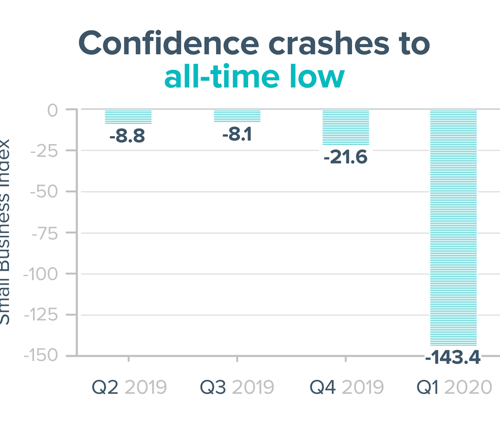
Confidence crashes to all time low
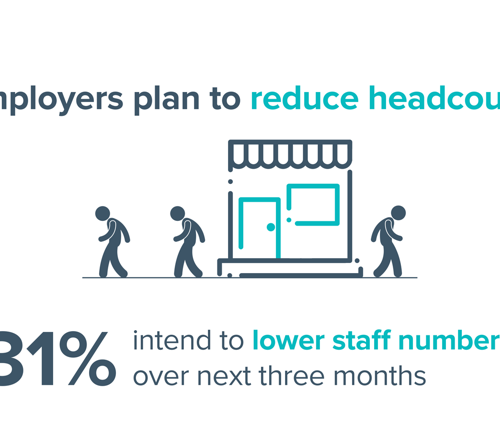
Employers plan to reduce headcount
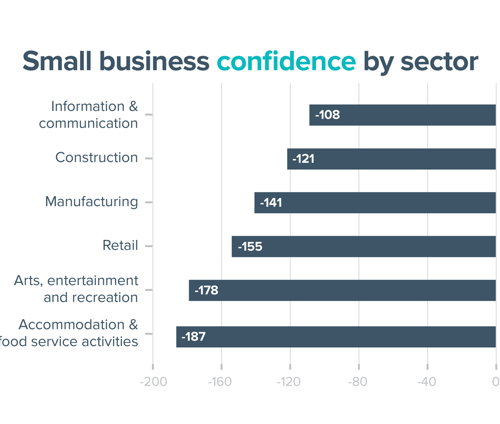
Small business confidence by sector

Exports at an all time low
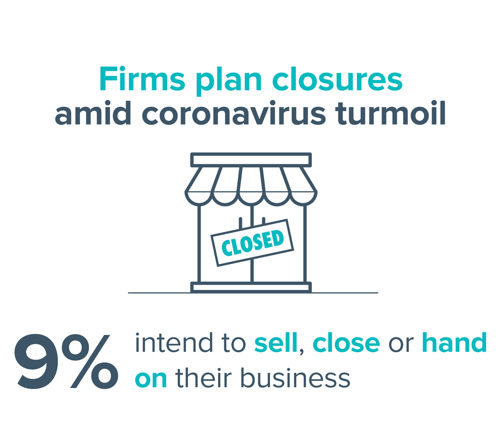
Firms plan closures amid coronavirus turmoil
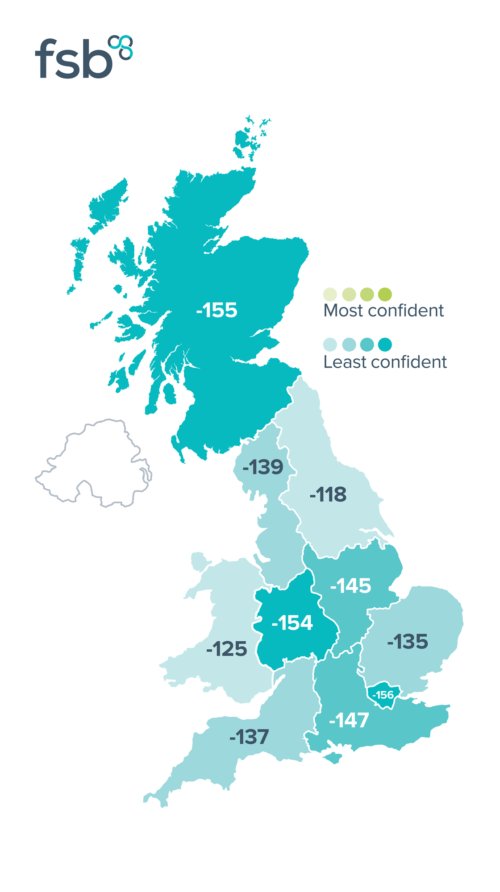
Key findings
Download the full report





